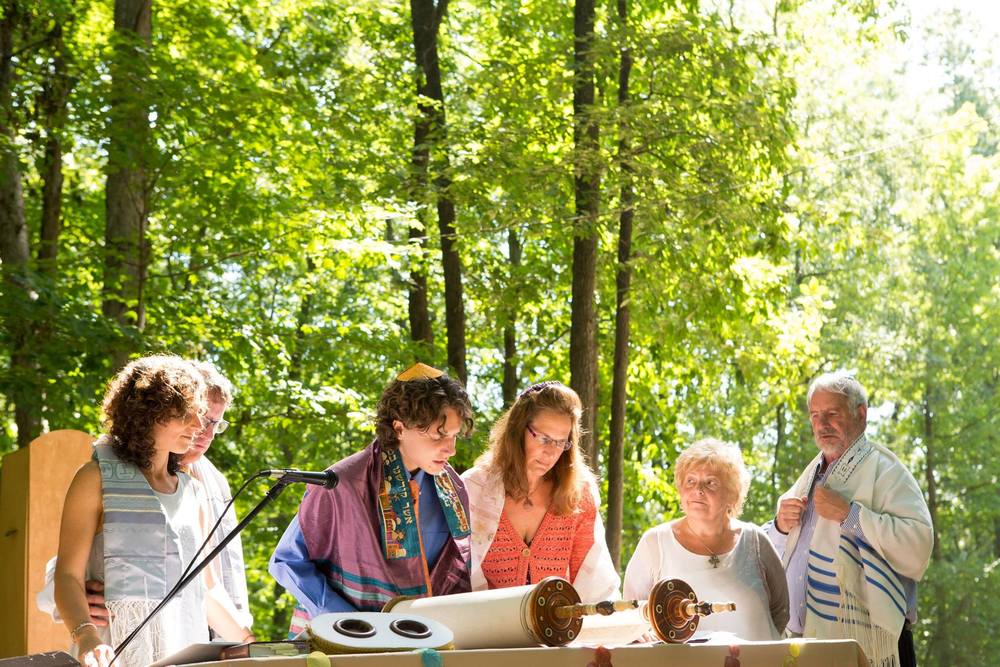B'nei Mitzvah, B-Mitzvah, Brit Mitzvah
When children reach the beginning of their teen years, Jewish tradition recognizes them as B’nei* Mitzvah ~ responsible and mature enough to participate as adults in Jewish communal ritual and religious practice. In North America, “Bar or Bat Mitzvah” often refers to the “event” (i.e. “My Bat Mitzvah was in June.”) Becoming B’nei Mitzvah is actually reaching a moment of status change vis-a-vis the Jewish community. This status change is often accompanied by study and activities designed to assist the teen in thinking more deeply about their connection to Jewish heritage, texts, wisdom, and values. Engagement in this process culminates in a ritual that reflects the growth that has occurred and entry into a new level of relationship with Torah.
As a rabbi and parent, I believe that a student’s experience of this process of study can be greatly enhanced by a course of study that is tailored to their interests and learning style. Over the period of time that I work with students and their family, I am primarily interested in helping them to explore and enhance their relationship with Judaism’s vast wisdom tradition, stories, ethics, prayer practices, mindfulness, and growing edge. This generally leads to more enthusiastic study and communal engagement long after the celebration has occurred. Therefore, each learner’s course of study and service is unique, though the core liturgy and Torah hold our structure and reflect the tradition of handing our values forward, l’dor vador (generation to generation).

I enjoy working with t’weens and teens to prepare for the service they will co-lead with me. I am most interested in helping them to discern how Judaism manifests in their lives as they become adult thinkers and feelers. Of course, we spend much of our time with Judaic content like Torah, the structure of a service, the meanings of the prayers (to them as well as in tradition), and their sense of what is sacred and where/how/when/what God (Divine Mystery) is in their lives, however, my goals are much broader.
My goals are:
- to help them connect what matters to them with their Jewish heritage;
- to encourage them to own their birthright as people of Yisrael – God-wrestlers who engage with, examine, question, and study Judaism as a lifelong process;
- to be an example, for them, of a person who finds great joy, strength, connection, and comfort in Judaism, Jewish practice and Jewish community while still taking issue with things that are done in the name of Jewish beliefs or our peoplehood;
- to be a trusted confidante and advisor (in other words, a rabbi!) for them during the process and throughout their lives.
* b’nei = children (m. plural); bat = daughter; bar = son.
As we become more sensitive to gender fluidity and self-identification, the gender binary of Hebrew and other languages that distinguish nouns as either masculine or feminine is fraught. Many of us in progressive Jewish spaces have begun to develop language that reflects our evolving sensitivity. Click below for a link to Keshet קשת.